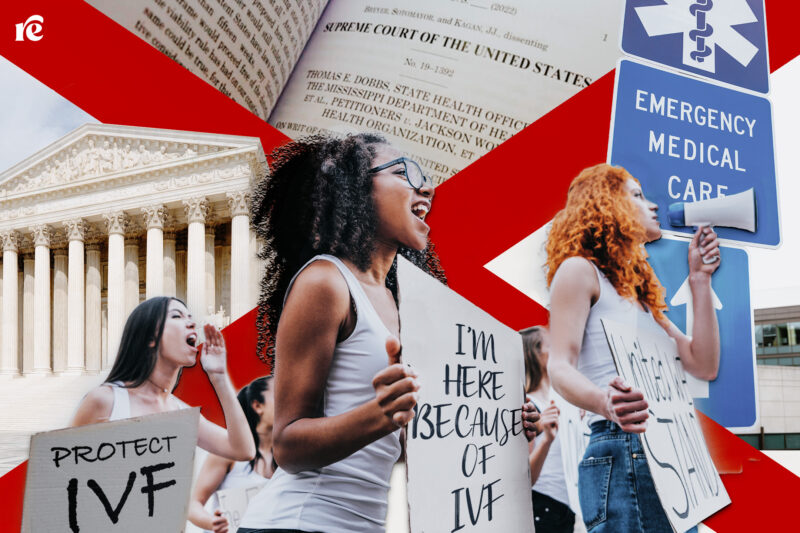The Supreme Court Is Poised to Weigh in on Fetal ‘Personhood’
Could Samuel Alito, Clarence Thomas, and Neil Gorsuch convince another justice to hear an IVF case out of Alabama?

This piece first appeared in our weekly newsletter, The Fallout.
After a summer heavy with ethics scandals, the Supreme Court justices will return to work Monday for their annual long conference, where they will consider adding a host of new cases to their 2024 docket—including stepping into the fight over IVF treatments in Alabama.
You may remember the Alabama Supreme Court’s February decision that ruled the state’s wrongful death statute could be used to hold a fertility clinic liable for the unauthorized destruction of unused embryos. The decision was a full-chested embrace of fetal “personhood” by the Alabama Supreme Court that set off a national panic about the consequences of overturning Roe v. Wade. And while Alabama’s legislature issued a band-aid response to the decision, it didn’t end the litigation.
In a move that could inadvertently pave the way for the Supreme Court to recognize a legal framework for fetal “personhood,” attorneys for the fertility clinics at the heart of the IVF case have asked the Court to step in and effectively end the litigation. The Center for Reproductive Medicine argues that the Alabama Supreme Court’s decision violates the clinic’s and others’ constitutional due process rights because they didn’t have “fair notice” that they could be held liable for damages—because for the first time in 150 years, embryos are considered “minor children” under the state’s wrongful death statute.
It’s a bold—and risky—litigation strategy for a couple of reasons. First, the Supreme Court rarely steps into review interpretations of state law, but because the clinic is advancing an argument based on the U.S. Constitution, there’s a greater chance the justices would intervene here. Second, it only takes four justices to agree to hear a case, and we know from the oral arguments in the EMTALA case last term that at least three justices—Alito, Thomas, and Gorsuch—are publicly “personhood”-curious. Could those three convince another of their conservative colleagues to join to hear the case, not to settle the question of whether or not the clinics’ due process rights were violated here, but to decide that the parents’ and the embryos’ due process rights were violated instead?
That scenario should be totally implausible, but we’ve seen the Court do a switch like this before—like when they took up Dobbs v. Jackson Women’s Health Organization to determine if Mississippi’s 15-week ban was constitutional and instead ended up overturning Roe. What’s to stop them from doing something similar here?
We could know as early as next week if the Court decides to take the Alabama case.

